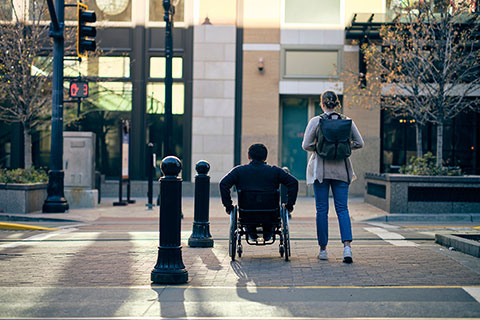Looking for courses that include curriculum about accessibility? Start here – but do check the UW course catalog, MyPlan, and the department course listings to confirm when courses are taught and by whom.
CSE 340 – Interaction Programming »
- Accessibility assignment and related learnings
User interfaces for computing systems, including principles and implementation techniques. Covers key topics and programming paradigms for interactive systems, such as event handling; graphical layout, design, and widgets; undo; accessibility; and context awareness. Provides experience with modern application domains and frameworks (e.g., mobile applications).
Quarter: Autumn 2023
CSE 440 – Introduction to HCI »
- Lecture on accessibility
Human-Computer Interaction (HCI) theory and techniques. Methods for designing, prototyping, and evaluating user interfaces to computing applications. Human capabilities, interface technology, interface design methods, and interface evaluation tools and techniques. Prerequisite: CSE 332.
Prerequisite: CSE 332
Quarter: Autumn 2023
CSE 482 – Capstone Software Design to Empower Underserved Populations »
Students work in teams to design and implement a software project involving multiple areas of the CSE curriculum, for the purpose of empowering marginalized or underserved populations.
Quarter: Not currently offered
Course details in MyPlan (UW ID required)
CSE 493e – Accessibility »
Starting Autumn 2023, CSE 493e – Accessibility will explore how computing can enable new solutions to accessibility, including both access to the world and access to computers. Similarly, the course will investigate how a disability-led perspective can guide us in the development of empowering and relevant solutions to accessibility problems. Both topics will be addressed through a combination of discussions, reading, and building.
Quarter: Autumn
CSE 513e – Disability Inclusion & Accessibility for Technologists »
A new (in Spring 2024) breadth class for CSE graduate students, the project-based course explores new solutions to accessibility through computing. Students take a disability studies perspective and gain valuable insights into the future of all user interface technology. The course includes creating accessible documents, websites and apps; accessibility in fabrication; AR/VR and AI/ML, and looks at intersectional concerns such as healthcare and sustainability.
Quarter: Spring
CS course description | MyPlan description
CSE 590w – Accessibility Research Seminar »
The seminar is for students and faculty members to explore research in accessible computing for people with disabilities in the context of human-computer interaction (HCI). The seminar consists of short student presentations of current research results, followed by discussion and critical evaluations the research. Topics vary by quarter.
Quarter: Autumn, Winter, Spring
CREATE description | CS course description | time schedule (UW ID required)
DISST – Disabilities Studies courses »
Disability Studies is a multi-disciplinary field that investigates, critiques, and enhances Western society’s understandings of disability.
Disabilities Studies course descriptions | UW course catalog
DISST 300 – Disability Studies in Education »
Examine history, theory, values, and assumptions about disability to develop a critical understanding of how disability is situated in the contexts of schools and society. Explore how disability is defined within our educational system and in society at large. Weekly guest speakers share their lived experiences and perspectives on the topics at hand (scholars, teachers, parents, students, and activists). Focus is historical and theoretical foundations for defining disability; disability in the context of public schooling; and the relationship between disability, social change, and equitable access to opportunity.
Quarter: Summer 2024
Course description in MyPlan | Syllabus
DISST 332 – Disability & Society: A Focus on Community and the Outdoors »
Apply learning from the field of disability studies by making outdoor play and recreation accessible to people with disabilities in partnership with the Outdoors For All Foundation. Through service-learning, academic texts, and contemporary media explore: access and barriers to inclusive play and recreation; allyship and social change; and the importance of outdoor play and recreation across the lifespan. Choice of activities depend on student’s experience with activities offered and our partner’s needs.
Quarter: Summer 2024
Course description in MyPlan | Syllabus | UW News article (2023)
DISST 360 – Redesigning Humanity: Disability in Speculative Fiction »
Analyze science fiction texts centering stories and novels by Black disabled authors and several films that use speculative settings and nonrealist conventions to comment on contemporary social issues and bioethical debates. Focus is on the connection between speculative fiction, the field of disability studies (DS), and the work of BIPOC and queer Disability Justice (DJ) activists and scholars. Consider representations of disability and neurodivergence, including intersections of racism and ableism, in which authors and readers create new meanings of accessibility, identity, community, family, justice, normal, and human.
Quarter: Summer 2024
Course description in MyPlan | Syllabus
DISST / HSTCMP 402 & 502 – Topics in Disability »
Hybrid course to center disability in historical inquiry, engaging with topics and themes in the histories of disability in the U.S. in 19th – 21st centuries. Synchronous or asynchronous readings, discussions, written responses to readings, and a final paper/project.
Quarter: Summer 2024
Course description in MyPlan | Syllabus
Gen St 297 – Disability 101: Identity, Education, Careers, & Leadership »
Small-group discussion with faculty representing a wide spectrum of academic disciplines. Topics include faculty’s research techniques or findings, concentrated reading in his/her area of interest, or illustrated problems and alternative related to the study of a particular academic discipline. Class structure varies based on instructor.
Quarter: Autumn, Winter, Spring, Summer
HCDE 315 – Inclusive Design and Engineering »
Surveys a range of methods that examine, support, and interrogate design and engineering for disability and inclusivity. Students enact inclusive methods, reflect on their capacities to broaden design and engineering goals, and critique and evaluate their effectiveness from a variety of perspectives.
Quarter: Spring 2024
Prerequisite: none
HCDE Directed Research Group »
Students in the Tactile Graphics Directed Research Group (Spring 2023) work on teams to develop workflows for tactile graphics. In this showcase, view demos of hardware and software solutions for low-cost Blind and Low Vision making and tactile biomechanics diagrams.
Quarter: Spring, Summer 2024
Prerequisite: Permission of instructor
HCDE 515 – Accessibility and Inclusive Design »
Introduction to designing, prototyping, and evaluating inclusive user interfaces that meet the needs of a diverse range of users – such as older adults; users with visual, cognitive or motor disabilities; and users who are deaf or hard of hearing. Building on basic concepts in human-centered design, students will learn about design exclusion and barriers to use, and methods by which these can be overcome.
Quarter: Spring 2024
Prerequisite: HCDE 518
INFO 498 – Special Topics in Informatics: Accessibility »
Making the world and its information accessible can be crucial for supporting independent living and providing equal access to the information-rich world for millions of people. This class will cover concepts related to inclusive design, why accessibility is important, what access technologies already exist, and how to make interfaces and technologies accessible. Through a combination of readings, hands-on exercises, and an open-ended project, students will learn about the history and existing state of accessibility, where its future might be, and how to apply its principles and guidelines in practice.
Quarter: Spring 2024
ITA 340 – Introduction to Web Publishing »
- Includes the Web Accessibility Initiative
Introduction to markup languages and publishing web content. Students gain understanding of HTML coding and extensions, image manipulation, information architecture, and web site publishing. Includes the Web Accessibility Initiative.
Quarter: Spring, Summer 2024
ITA 341 – Client-side Scripting and Design »
Introduction to web browser design environment, scripting languages, JavaScript, Document Object Model, and creation of dynamic HTML web pages in combination with Cascading Style Sheets. Includes client-server architecture and web design principles in the contexts of technical feasibility, usability, and accessibility.
Quarter: Spring, Summer 2024
ME 412 – Biomechanics of Movement »
Introduction to the dynamics and control of human movement and other biological systems. An overview of the major challenges in movement biomechanics and experience with the engineering tools we use to address these challenges. Course includes weekly assignment, hands-on labs, and a final project.
Quarter: Winter
Prerequisites: ME 374 or permission
HCID 501 – Immersion Studio
A five-day intensive workshop that orients students to core ideas and terminology in HCI and design, provide some key skills that will be instrumental in success in a studio learning environment, and provide students with a intriguing portfolio story worth talking about with industry professionals.
Quarter: varies
Prerequisites: MHCID major
PMP – Future of Access Technologies »
Accessible technologies are at the forefront of technological innovation in a changing society. This class covers these cutting edge technologies, teaches thinking about access and inclusion, and looks at some of the history and critical theory around disability. Primarily, this is a class to build in, and we will learn about physical access technology using Arduinos and fabrication tools as well as software access technology. This is a graduate class with a fairly open-ended project at the end.
Quarter: varies
Prerequisites: comfort with programming, new languages
REHAB 566 – Disability and Health: Tensions, Intersections, and Opportunities »
Interrogate ways of thinking about disability and health within historical and contemporary healthcare practice and lay communities. Engage in critical analysis of disability and how tensions between various understandings of disability influence healthcare delivery, health professions education, and dominant social discourses of health and wellness, including the intersectional relationship between disability and other marginalized identities.
Quarter: Summer 2024
Syllabus
Related news
New Book: Teaching Accessible Computing
March 14, 2024
A new, free, and community-sourced online book helps Computer Science educators integrate accessibility topics into their classes. Teaching Accessibility provides the foundations of accessibility relevant to computer science teaching and then presents teaching methods for integrating those topics into course designs.
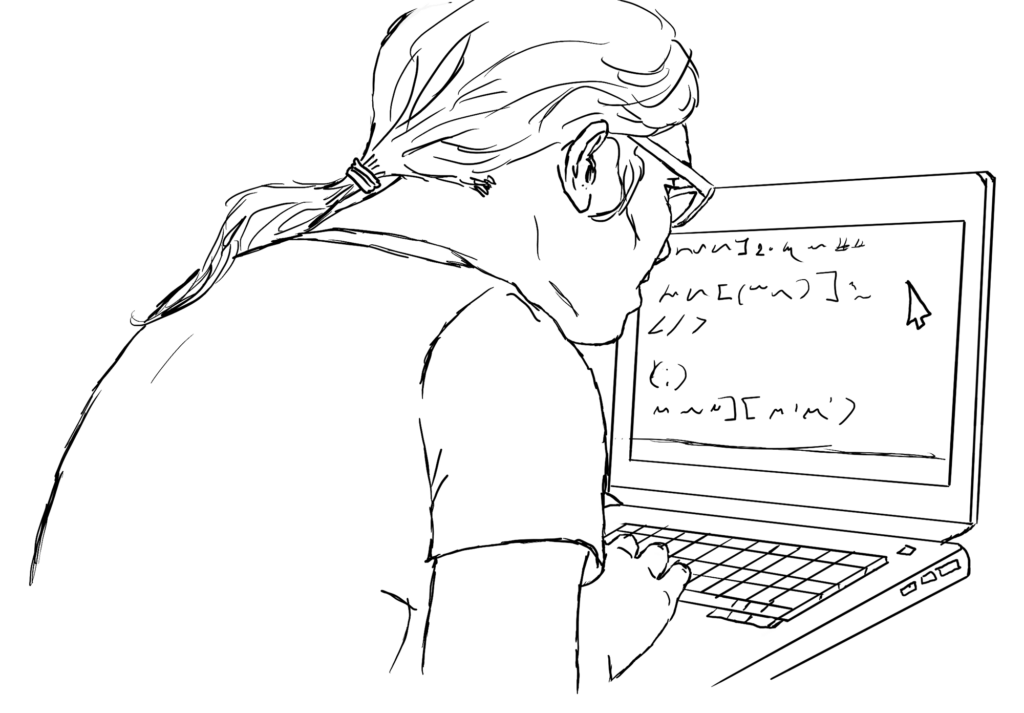
The editors are Alannah Oleson, a postdoctoral scholar and co-founder at the UW Center for Learning, Computing, and Imagination (LCI), CREATE and iSchool faculty Amy Ko, and Richard Ladner, CREATE Director of Education Emeritus. You may recognize many CREATE faculty members’ research referenced throughout the guide. CREATE Director Jennifer Mankoff and CREATE Ph.D. student Avery Kelly Mack contributed a foundational chapter that advocates for teaching inclusively in addition to teaching about accessibility.
Letting the book speak for itself
"... we’ve designed this book as a free, open, living, web-first document. It’s free thanks to a National Science Foundation grant (NSF No. 2137312) that has funded our time to edit and publish the book. It’s open in that you can see and comment on the book at any time, creating community around its content. It’s living in that we expect it to regularly change and evolve as the community of people integrating accessibility into their CS courses grows and evolves. And it’s web-first in that the book is designed first and foremost as an accessible website to be read on desktops, laptops, and mobile devices, rather than as a print book or PDF. This ensures that everyone can read it, but also that it can be easily changed and updated as our understandings of how to teach accessibility in CS evolve."
Introduction by Alannah Oleson, Amy J. Ko, Richard Ladner
"To write these chapters, we recruited some of the world’s experts on accessible computing and teaching accessible computing, giving them a platform to share both their content knowledge about how accessibility intersects with specific CS topics, but also their pedagogical content knowledge about how to teach those intersections in CS courses."
Introduction by Alannah Oleson, Amy J. Ko, Richard Ladner
Augmented Reality to Support Accessibility
October 25, 2023
RASSAR – Room Accessibility and Safety Scan in Augmented Reality – is a novel smartphone-based prototype for semi-automatically identifying, categorizing, and localizing indoor accessibility and safety issues. With RASSAR, the user holds out their phone and scans a space. The tool uses LiDAR and camera data, real-time machine learning, and AR to construct a real-time model of the 3D scene, attempts to identify and classify known accessibility and safety issues, and visualizes potential problems overlaid in AR.
RASSAR researchers envision the tool as an aid in the building and validation of new construction, planning renovations, or updating homes for health concerns, or for telehealth home visits with occupational therapists. UW News interviewed two CREATE Ph.D. students about their work on the project:
Research at the Intersection of Race, Disability and Accessibility
October 13, 2023
What are the opportunities for research to engage the intersection of race and disability?
What is the value of considering how constructs of race and disability work alongside each other within accessibility research studies?
Two CREATE Ph.D. students have explored these questions and found little focus on this intersection within accessibility research. In their paper, Working at the Intersection of Race, Disability and Accessibility (PDF), they observe that we’re missing out on the full nuance of marginalized and "otherized" groups.
The Allen School Ph.D. students, Aashaka Desai and Aaleyah Lewis, and collaborators will present their findings at the ASSETS 2023 conference on Tuesday, October 24.
Spurred by the conversation at the Race, Disability & Technology research seminar earlier in the year, members of the team realized they lacked a framework for thinking about work at this intersection. In response, they assembled a larger team to conduct an analysis of existing work and research with accessibility research.
The resulting paper presents a review of considerations for engaging with race and disability in the research and education process. It offers analyses of exemplary papers, highlights opportunities for intersectional engagement, and presents a framework to explore race and disability research. Case studies exemplify engagement at this intersection throughout the course of research, in designs of socio-technical systems, and in education.
Case studies
- Representation in image descriptions: How to describe appearance, factoring preferences for self-descriptions of identity, concerns around misrepresentation by others, interest in knowing others’ appearance, and guidance for AI-generated image descriptions.
- Experiences of immigrants with disabilities: Cultural barriers that include cultural disconnects and levels of stigma about disability between refugees and host countries compound language barriers.
- Designing for intersectional, interdependent accessibility: How access practices as well as cultural and racial practices influence every stage of research design, method, and dissemination, in the context of work with communities of translators.

Authors, left to right: Christina Harringon, Aashaka Desai, Aaleyah Lewis, Sanika Moharana, Anne Spencer Ross, and Jennifer Mankoff Authors
- Christina N. Harrington, Assistant Professor in the Human-Computer Interaction Institute at Carnegie Mellon
- Aashaka Desai, Ph.D. student in the Allen School, advised by Jennifer Mankoff and Richard Ladner
- Aaleyah Lewis, Ph.D. student in the Allen School, advised by James Fogarty
- Sanika Moharana, Ph.D. student at Carnegie Mellon
- Anne Spencer Ross, Assistant Professor of Computer Science at Bucknell University
- CREATE Director Jennifer Mankoff
CREATE's Newest Ph.D Graduates
June 9, 2023
We're proud to see these talented, passionate students receive their Ph.D.s and excited to see how they continue their work in accessibility.
Alyssa Spomer, Ph.D. Mechanical Engineering
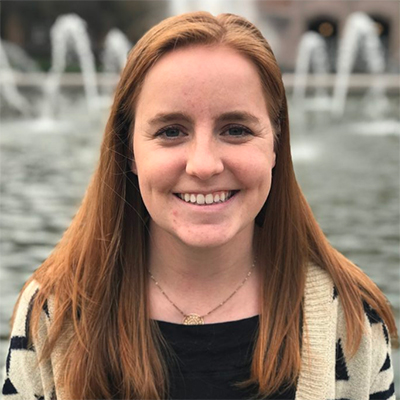
Dissertation: Evaluating multimodal biofeedback to target and improve motor control in cerebral palsy
Advisor: Kat Steele
Honors, awards and articles:
- NSF Graduate Research Fellowship and TL1 Fellowship
- Husky 100 in 2020
- Mechanical Engineering feature article Supporting Mobility in Cerebral Palsy
- HuskyADAPT Student Chair
Current: Clinical Scientist at Gillette Children's Hospital, leading research in the Gillette Rehabilitation Department to improve healthcare outcomes for children with complex movement conditions.
Elijah Kuska, Ph.D. Mechanical Engineering
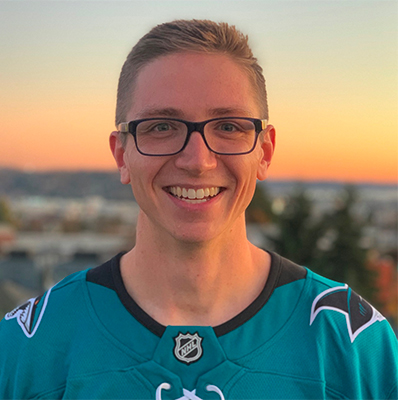
Dissertation: In Silico Techniques to Improve Understanding of Gait in Cerebral Palsy
Advisor: Kat Steele
Honors, awards and articles:
- TL1 Fellowship
- Mechanical Engineering article Making an impact through research and teaching
Plans: Elija will start as an assistant professor at the Colorado School of Mines in the Mechanical Engineering Department in January 2024.
Megan Ebers, Ph.D. Mechanical Engineering
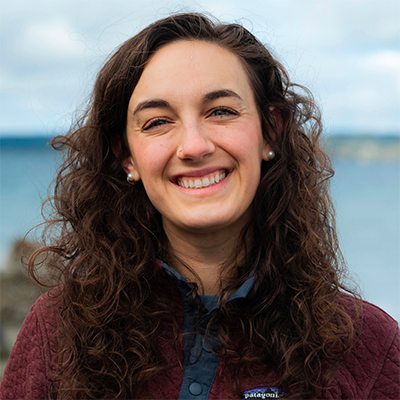
Dissertation: Machine learning for dynamical models of human movement
Advisors: Kat Steele and Nathan Kutz
Awards, honors and articles:
- Dual Ph.D.s in Mechanical Engineering and Applied Math
- NSF Graduate Research Fellowship
Plans: Megan will join the UW AI Institute as a postdoc in Spring of 2023 to pursue clinical translation of her methods to evaluate digital biomarkers to support health and function from wearable data.
Nicole Zaino, Ph.D. Mechanical Engineering
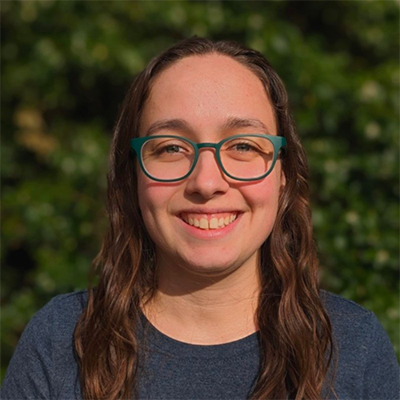
Dissertation: Walking and rolling: Evaluating technology to support multimodal mobility for individuals with disabilities
Advisors: Kat Steele and Heather Feldner
Awards, honors and articles:
- National Science Foundation Graduate Research Fellow, 2018 - Present
- Gatzert Child Welfare Fellowship, University of Washington, 2022
- Best Paper Award at the European Society of Movement Analysis for Adults and Children, 2019.
- Finalist, International Society of Biomechanics David Winter Young Investigator Award, 2019
Plans: Nicole is headed to Bozeman Montana to join the Crosscut Elite Training team to work toward joining the national paralympic nordic ski team for Milano-Cortina 2026, while working part-time with academia and industry partners.
Ricky Zhang
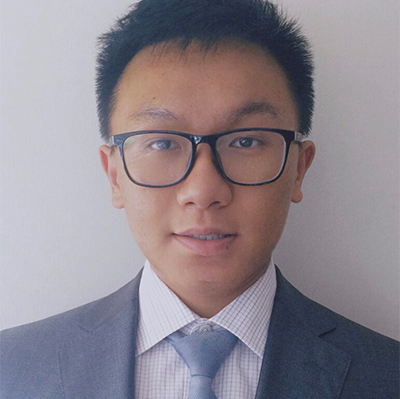
Dissertation: Pedestrian Path Network Mapping and Assessment with Scalable Machine Learning Approaches
Advisors: Anat Caspi and Linda Shapiro
Plans: Ricky will be a postdoc in Bill Howe’s lab at the University of Washington.
Kat Steele, who has been busy advising four out of five of these new PH.D.s, noted, "We have an amazing crew of graduate students continuing and expanding upon much of this work. We're excited for new collaborations and translating these methods into the clinic and community."
Rethinking Disability and Advancing Access
UW CREATE collaborates toward a world with fewer problems and more solutions for people of all abilities.
The UW College of Engineering showcased CREATE’s mission, moonshots, and collaborative successes in a feature article, Rethinking disability and advancing access, written by Alice Skipton. The article is reproduced and reformatted here.
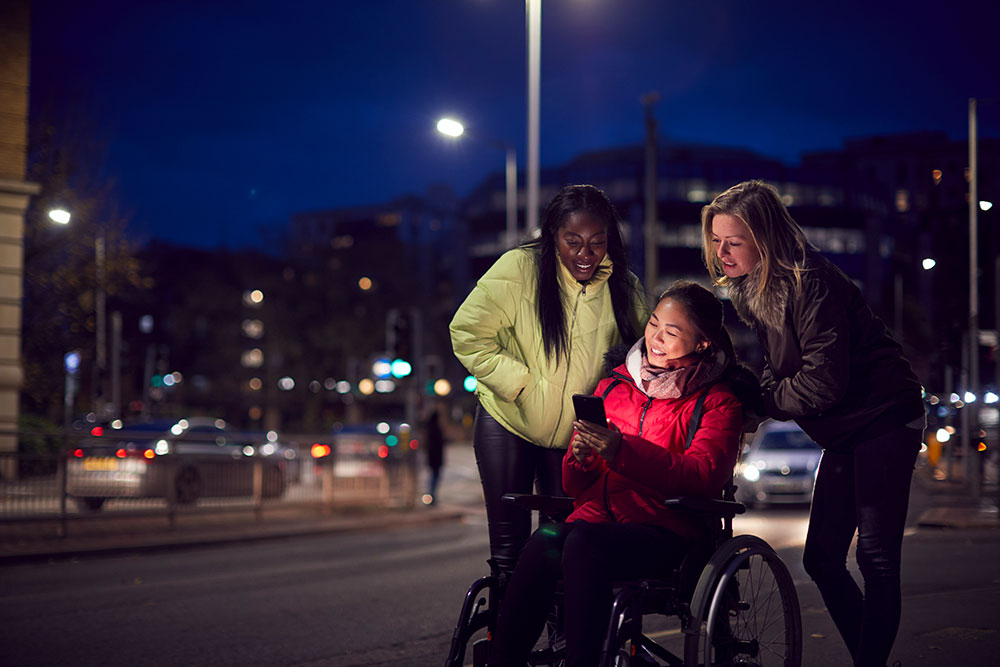
CREATE researchers and partners work on high-impact projects — such as those focused on mobility and on mobile device accessibility — advancing the inclusion and participation for people with disabilities. According to the Centers for Disease Control and Prevention (CDC), one in four people in the United States lives with a disability.
“The presence of disability is everywhere. But how disability has been constructed, as an individual problem that needs to be fixed, leads to exclusion and discrimination.”
Heather Feldner, UW Medicine assistant professor in Rehabilitation Medicine and a CREATE associate director
The construct also ignores the reality that people's physical and mental abilities continually change. Examples include pregnancy, childbirth, illness, injuries, accidents and aging. Additionally, assuming that people all move, think or communicate in a certain way fails to recognize diverse bodies and minds. By ignoring this reality, technology and access solutions have traditionally been limited and limiting.
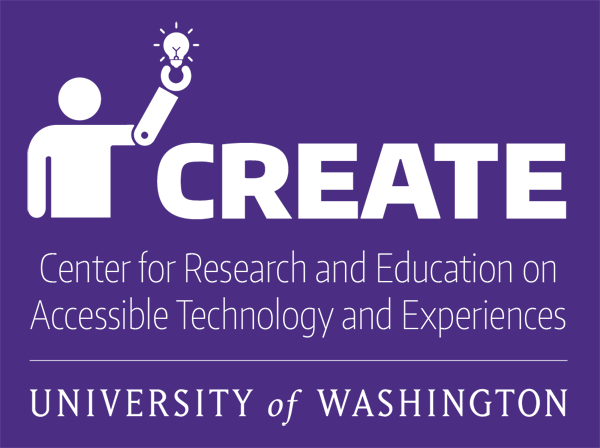
UW CREATE, a practical, applied research center, exists to counter this problem by making technology accessible and the world accessible through technology. Launched in early 2020 with support from Microsoft, the Center connects research to industry and the community.
On campus, it brings together accessibility experts and work-in-progress from across engineering, medicine, disability studies, computer science, information science and more, with the model always open to new collaborators.
“Anyone interested in working in the area of accessible technology is invited to become part of CREATE,” says Jacob O. Wobbrock, a professor in the UW Information School and one of the founders and co-director of the Center.
Shooting for the moon
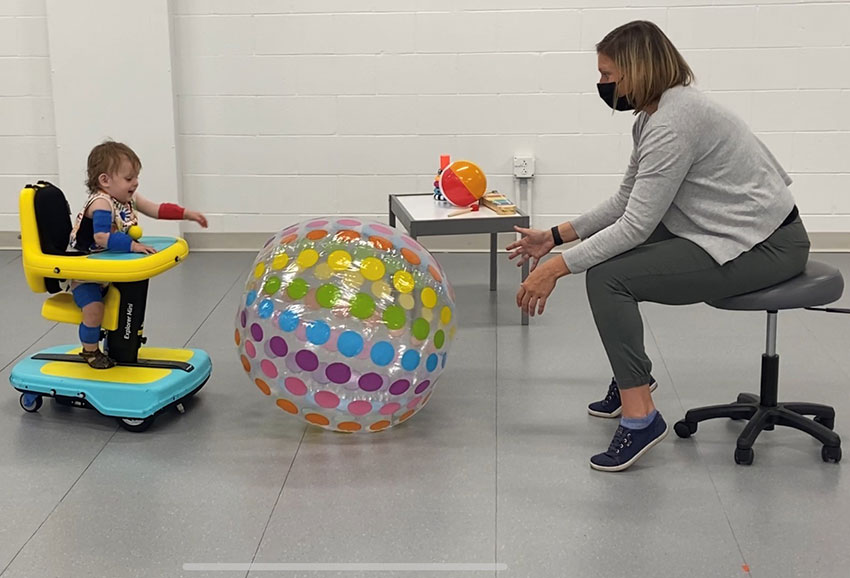
CREATE is partnering with UW I-LABS to explore how accessibility impacts young children's development, identity and agency. Their study uses the only powered mobility device available in the U.S. designed for children one to three years old. Photo courtesy of UW CREATE. “We have an amazing critical mass at UW of faculty doing accessibility research,” says Jennifer Mankoff, a professor in the Paul G. Allen School of Computer Science & Engineering and another founder and co-director of CREATE. “There's also a lot of cross-talk with Microsoft, other technology leaders, and local and national community groups. CREATE wants to ensure people joining the workforce know about accessibility and technology and that the work they do while they are at UW directly and positively impacts the disability community.” The Center’s community and corporate partnerships approach increases creativity and real-world impact.
The concept of moonshots — technology breakthroughs resulting from advances in space exploration — offers a captivating way of thinking about the potential of CREATE's research. The Center currently has four research moonshots for addressing technological accessibility problems. One focuses on how accessibility impacts young children's development, identity and agency and includes a mobility and learning study with the UW Institute for Learning & Brain Sciences (I-LABS) that employs the only powered mobility device available in the U.S. market specifically designed for children one to three years old. Another looks more broadly at mobility indoors and outdoors, such as sidewalk and transit accessibility. A third seeks ways to make mobile and wearable devices more accessible along with the apps people use every day to access such essentials as banking, gaming, transportation and more. A fourth works toward addressing access, equity and inclusion for multiply marginalized people.
"CREATE wants to ensure people joining the workforce know about accessibility and technology and that the work they do while they are at UW directly and positively impacts the disability community.”
— Jennifer Mankoff, founder and co-director of CREATE
For CREATE, advancing these moonshots isn't just about areas where technologies already exist, like improving an interface to meet more people's needs. It’s about asking questions and pushing research to address larger issues and inequities. “In certain spaces, disabled people are overrepresented, like in the unhoused or prison populations, or in health-care settings,” Mankoff says. “In others, they are underrepresented, such as in higher education, or simply overlooked. For example, disabled people are more likely to die in disaster situations because disaster response plans often don’t include them. We need to ask how technology contributes to these problems and how it can be part of the solution.”
Broader problem-solving abilities
For even greater impact, CREATE has situated these research moonshots within a practical framework for change that involves education initiatives, translation work and research funding. Seminars, conversations, courses, clubs and internship opportunities all advance the knowledge and expertise of the next generation of accessibility leaders. Translation work ensures that ideas get shaped and brought to life by community stakeholders and through collaborations with UW entities like the TASKAR Center for Accessible Technology, HuskyADAPT and the UW Disability Studies Program, as well as through collaborations with industry leaders like Microsoft, Google and Meta. CREATE’s research funding adds momentum by supporting education, translation and direct involvement of people with disabilities.
Related story:
Sidewalk EquityEngineering and computer science researchers seek to make digital wayfinding more equitable and accessible to more people.
Nicole Zaino, a mechanical engineering Ph.D. student participating in CREATE's early childhood mobility technology research, describes the immense benefits of having her education situated in the context of CREATE. “It's broadened my research and made me a better engineer,” she says. She talks about the critical importance of end-user expertise, like the families participating in the mobility and learning study. Doing collaborative research and taking classes in other disciplines gives her more insights into intersecting issues. That knowledge and new vocabulary inform her work because she can search out research from different fields she otherwise wouldn't have known about.
More equity advocates
At the same time, Zaino’s lived experience with her disability also broadens her perspective and enhances her research. She became interested in her current field when testing out new leg braces and seeing other assistive technology on the shelves at the clinic. For Mankoff, it was the reverse. She worked in the field and then experienced disability when diagnosed with Lyme disease, something she's incorporated into her research. Wobbrock got a front-row seat to mobility and accessibility challenges when he severely herniated his L5-S1 disc and couldn't sit down for two years. For Feldner, although she studied disability academically as a physical therapist and in disability studies, first-hand experiences came later in her career when she became a disability advocate for one of her children and a parent. At CREATE, more than 50% of those involved have some lived experience with disability. This strengthens the Center by bringing a diversity of perspectives and first-hand knowledge about how assumptions often get in the way of progress.
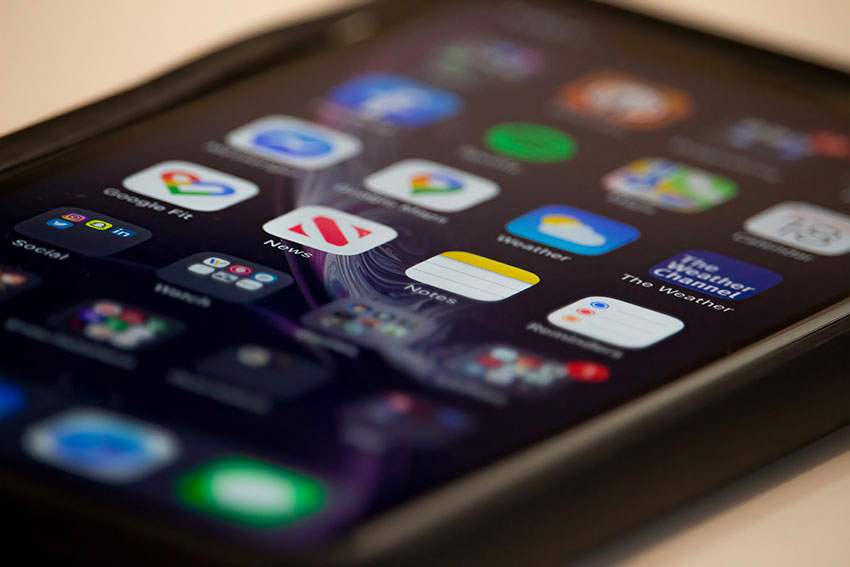
Seeking to push progress further on campus, CREATE has an initiative on research at the intersection of race, disability and technology with the Allen School, the Simpson Center for the Humanities, the Population Health Initiative, the Office of Minority Affairs and Diversity, the Buerk Center for Entrepreneurship, and the Office of the ADA Coordinator.
CDC statistics show that the number of people experiencing a disability is higher when examined through the lens of race and ethnicity. With events and an open call for proposals, the initiative seeks increased research and institutional action in higher education, health care, artificial intelligence, biased institutions and more.
“If we anticipate that people don't conform to certain ability assumptions, we can think ahead,” says Wobbrock. “What would that mean for a particular technology design? It’s a longstanding tenant of accessibility research that better access for some people results in better access for all people.”
